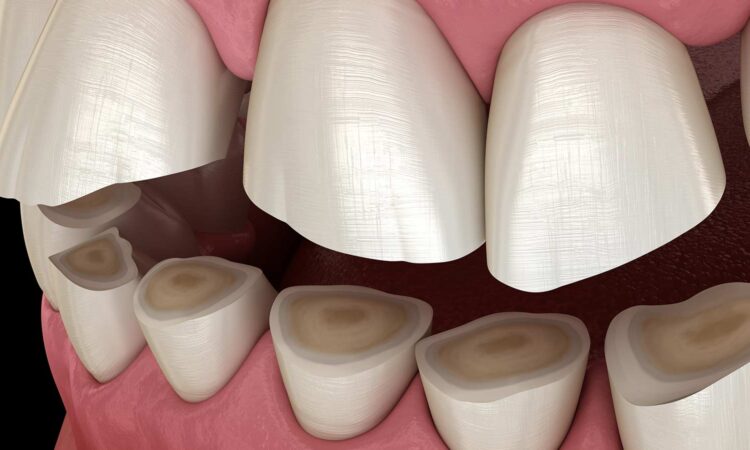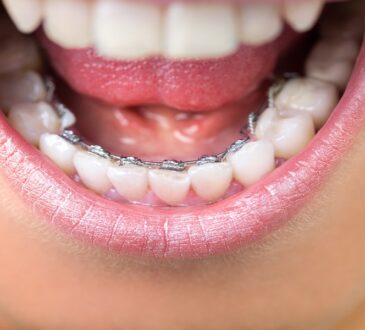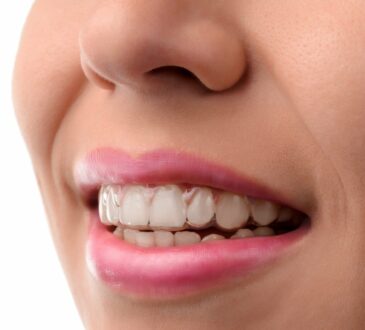
The pathological term for teeth grinding is known as bruxism, a state in which you squeeze or polish your teeth together, also called scraping or clenching. It can take place either during the day or at night. If you have vigilant bruxism, you clench or grind your teeth when you are awake without being conscious that you’re performing it. Consulting an orthodontist near me can help identify underlying alignment issues that contribute to grinding. If you have teeth grinding, you squeeze or grind your teeth while sleeping. Sleep bruxism is a disorder, SRB (sleep-related bruxism). People who crush or grind their teeth while sleeping are more prone to have other sleeping disorders, such as snoring and interruption in breathing known as Sleep Apnea. Some people don’t realize they have sleep bruxism until they have a tooth or jaw issue. In some people, bruxism can be an issue and often causes jaw pain, tooth decay, headaches, and other issues. The grinding noise can disturb your partner’s sleep. So study the indications of sleep bruxism and get proper oral care from your dentist.
Indications.
Indications of bruxism are.
- The first symptom is the noise of teeth grinding or crushing, where your partner’s sleep is disturbed due to this noise.
- Teeth that are leveled, broken, loosened, or cracked.
- Shabby tooth enamel. This can reveal the interior layers of your teeth.
- Toothache or sensitivity.
- Tired or rough jaw tissue, or a fastened jaw that won’t open or close. Your jaw may crack and click.
- Jaw, face, or neck ache, or stiffness.
- Jaw tissues that are bigger than expected.
- This pain feels like an ear pain, even though it has nothing to do with the ear.
- Dull migraine at the edges of your head between your ears and forehead.
- Sleeping issues.
When to consult a doctor?
Consult your dentist or other healthcare expert if you have these indications that could be caused by crushing or clenching your teeth, or if you have any other worries related to your jaws and teeth. In case you observe that your child is grinding their teeth, do mention it to the dentist during the next visit.
Reasons.
The reason for bruxism is not fully understood, whether it is due to a genetic issue or due to a mental or physical aspect.
Wakeful bruxism is due to feelings of fear, stress, disappointment, anger, or pressure. Bruxism can also be a managing approach or a routine when you are in deep thought or focusing.
Sleep bruxism is something associated with a sleep chewing task connected with brief disruptions during sleep
Problems.
For most of them, bruxism doesn’t create major problems. But extreme bruxism may lead to.
- Harm to your teeth, or jaws, and to teeth restoration, or other dental fixings.
- Strain-type headaches.
- Extreme facial or jaw ache.
- Illness that happens in the TMJs (temporomandibular joints). These are presented in front of your ears. TMJ issues can cause pain and sound like clicking while opening and closing your mouth.




